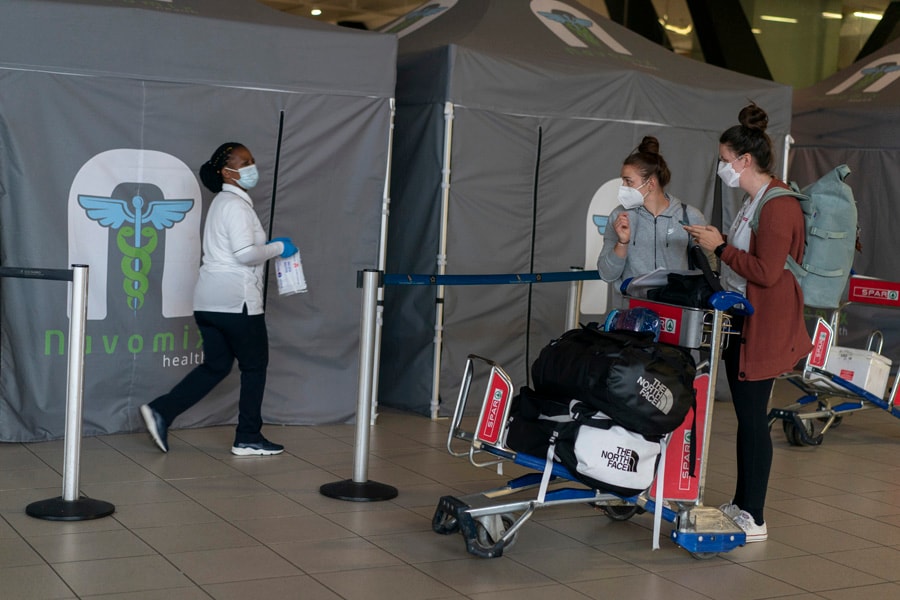
Will the vaccines stop Omicron? Scientists are racing to find out
The vaccines may well continue to ward off severe illness and death, although booster doses may be needed to protect most people
 International travelers wait to take PCR tests upon arriving at the O.R. Tambo International airport in Johannesburg, Nov. 27, 2021. One nation after another shut its doors to southern Africa over the weekend, even as they spurned public health measures that scientists said were far more urgently needed to take on the omicron variant of COVID. (Joao Silva/The New York Times)
International travelers wait to take PCR tests upon arriving at the O.R. Tambo International airport in Johannesburg, Nov. 27, 2021. One nation after another shut its doors to southern Africa over the weekend, even as they spurned public health measures that scientists said were far more urgently needed to take on the omicron variant of COVID. (Joao Silva/The New York Times)
As nations severed air links from southern Africa amid fears of another global surge of the coronavirus, scientists scrambled Sunday to gather data on the new omicron variant, its capabilities and — perhaps most important — how effectively the current vaccines will protect against it.
The early findings are a mixed picture. The variant may be more transmissible and better able to evade the body’s immune responses, both to vaccination and to natural infection, than prior versions of the virus, experts said in interviews.
The vaccines may well continue to ward off severe illness and death, although booster doses may be needed to protect most people. Still, the makers of the two most effective vaccines, Pfizer-BioNTech and Moderna, are preparing to reformulate their shots if necessary.
“We really need to be vigilant about this new variant and preparing for it,” said Jesse Bloom, an evolutionary biologist at the Fred Hutchinson Cancer Research Center in Seattle.
“Probably in a few weeks, we’ll have a better sense of how much this variant is spreading and how necessary it might be to push forward with a variant vaccine,” Bloom said.
©2019 New York Times News Service







